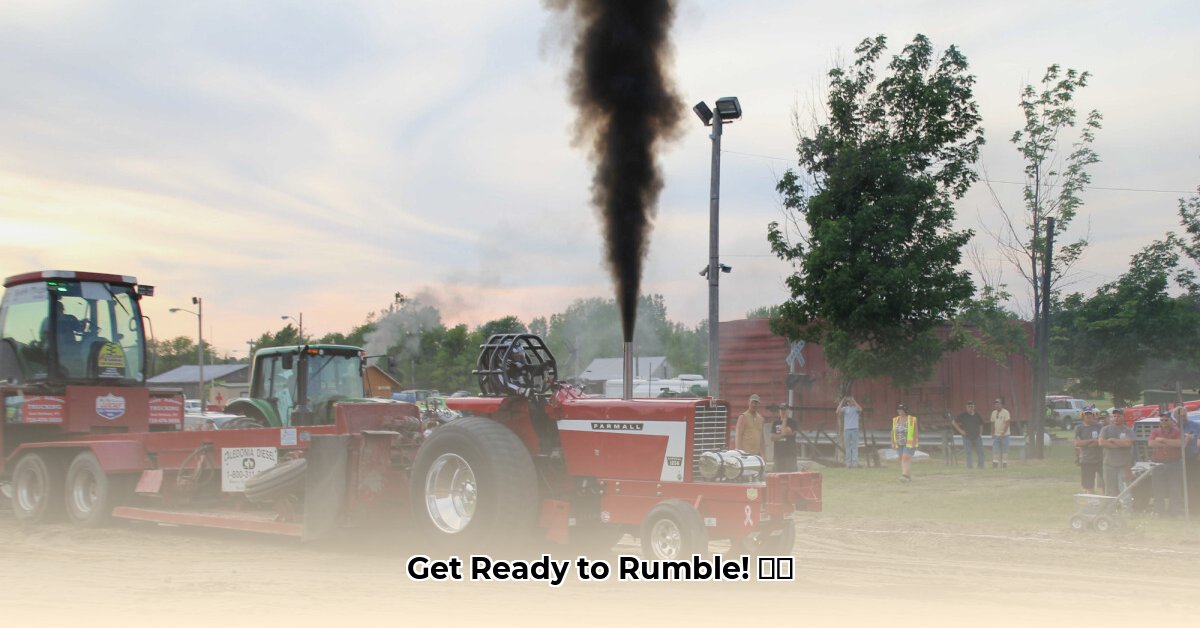
Alexander Tractor Pull 2024: Your Guide to the Fun
The Alexander Tractor Pull, returning July 12th and 13th, 2024, promises a weekend of high-octane excitement. This isn't just about tractors; it's a community event celebrating rural life and engineering. For more details, visit the official website: Alexander Tractor Pull.
What to Expect: A Full-Throttle Experience
Expect a spectacle of powerful tractors competing in various classes: Super Farm, Light Super Stock, Modified Tractors, Limited Pro Stock Diesel Trucks, and Heavy Super Stocks. Beyond the competition, attendees can enjoy delicious food, live music, and a vibrant atmosphere. Friday night features a chicken BBQ, and live music will energize both Friday and Saturday nights. It's a family-friendly event with activities for all ages.
Projecting Success: A Data-Driven Approach to Attendance
Accurately predicting attendance is crucial for maximizing revenue and minimizing risk. While precise historical attendance data is limited, projecting success involves analyzing several key factors. How can we ensure a successful event?
Understanding the Variables Influencing Attendance
Several factors significantly impact attendance at the Alexander Tractor Pull. These include: past event attendance, local economic conditions, the weather forecast, competing events, the effectiveness of marketing efforts, and ticket pricing strategies. Analyzing these will allow us to build a robust predictive model.
Forecasting Methods: Optimizing for Accuracy
Forecasting requires adaptable methods. For short-term projections (e.g., 2024), a simple extrapolation based on past attendance, adjusted for anticipated changes in the variables mentioned above, may suffice. For long-term projections (3-5 years), a more sophisticated model incorporating time-series analysis or machine learning (if sufficient data is available) is recommended.
Building a Predictive Model: A Step-by-Step Approach
Data Gathering: Collect comprehensive data on past attendance, local economic indicators (e.g., unemployment rates, consumer spending), historical weather patterns, data on competing events, and the ROI of past marketing campaigns.
Trend Analysis: Identify trends within the data. Are there seasonal peaks or troughs in attendance? How do economic or weather conditions correlate with attendance?
Model Development: Select a forecasting method based on the data available and the desired accuracy. Consider the complexity of the model and its computational requirements.
Model Testing & Refinement: Test the model using historical data, comparing its predictions with actual attendance figures. Iteratively adjust the model to improve accuracy.
External Factor Integration: Incorporate external factors such as projected economic growth, weather forecasts, and details about any significant competing events.
Scenario Planning: Develop different scenarios (best-case, most-likely, worst-case) to prepare for various outcomes. This helps design robust contingency plans.
Regular Updates: Regularly update projections (at least quarterly) to account for changes in market conditions and new data.
Risk Mitigation and Contingency Planning: Preparing for the Unexpected
Potential risks include low attendance, inclement weather, and insufficient funding. Mitigation strategies include aggressive marketing campaigns, early-bird ticket discounts, securing sponsorships, and establishing a comprehensive contingency plan should bad weather occur (e.g., indoor/covered seating). A well-defined budget and financial planning will also help reduce financial risk. Sponsorship agreements, which can significantly reduce financial risk, should be prioritized.
Actionable Steps for Revenue Growth and Event Success
Invest in Data Analytics: Implement robust data collection and analysis methods to improve forecasting accuracy.
Diversify Revenue Streams: Explore additional revenue streams, such as merchandise sales, concessions, and premium ticket options.
Enhance Marketing: Employ targeted marketing campaigns across digital platforms and traditional media. Consider partnerships with local businesses and leveraging social media influencers for event promotion.
Community Engagement: Foster strong relationships with local communities to build brand loyalty.
The Alexander Tractor Pull offers significant opportunities for economic growth and community engagement. By leveraging data-driven forecasting and proactive risk management, organizers can ensure a successful and financially viable event for years to come.